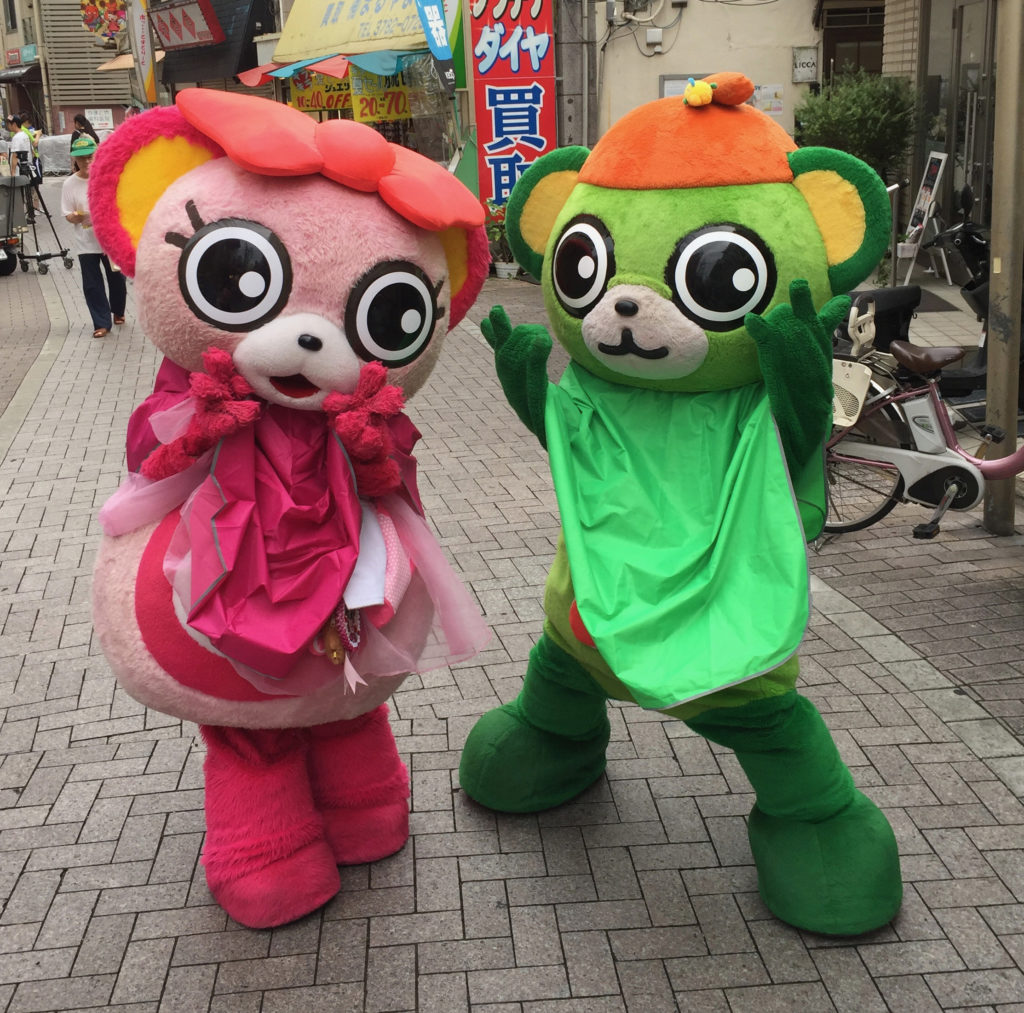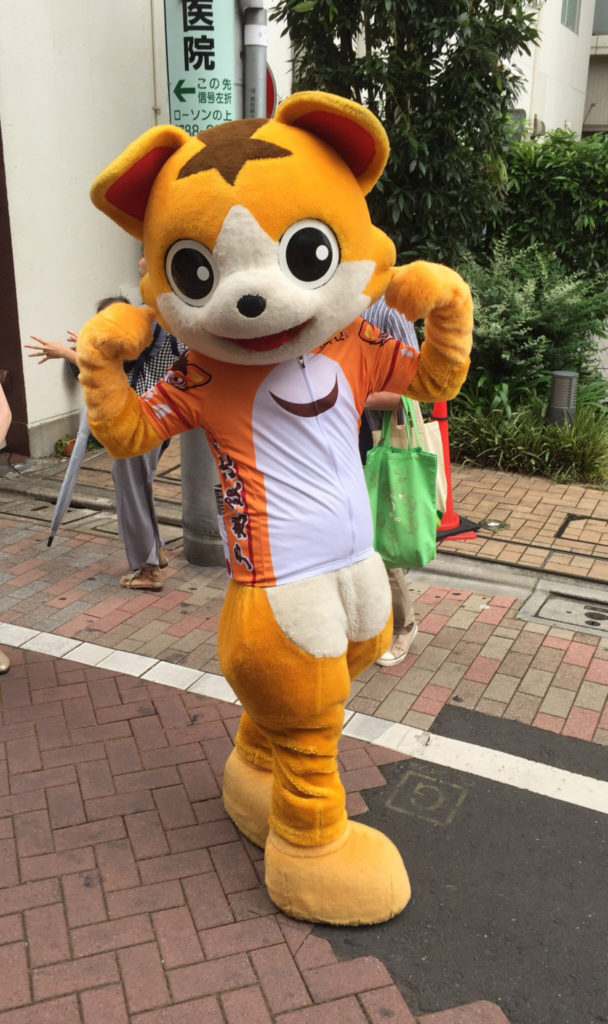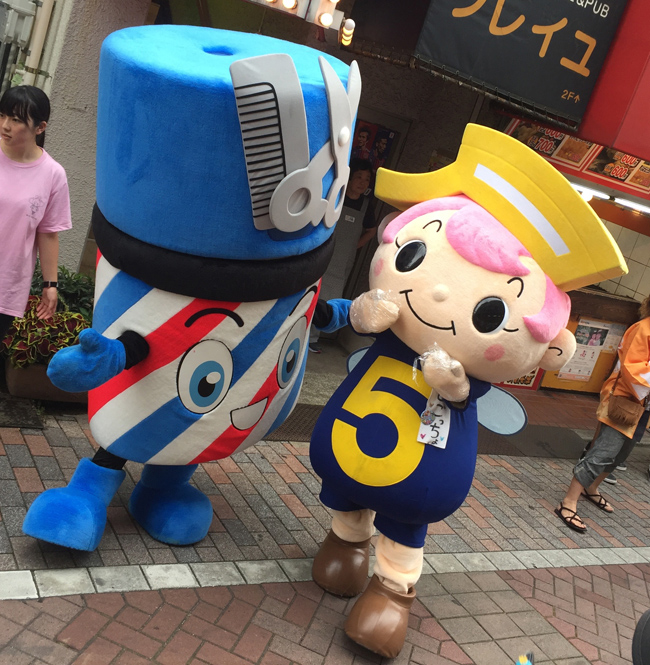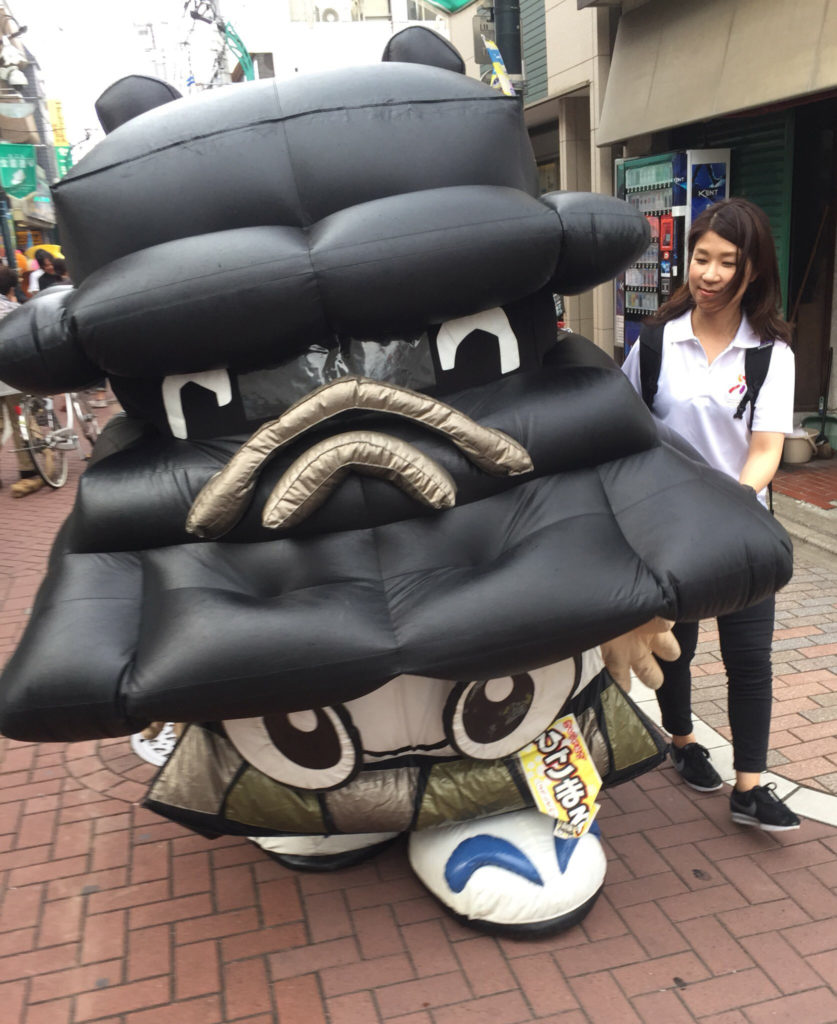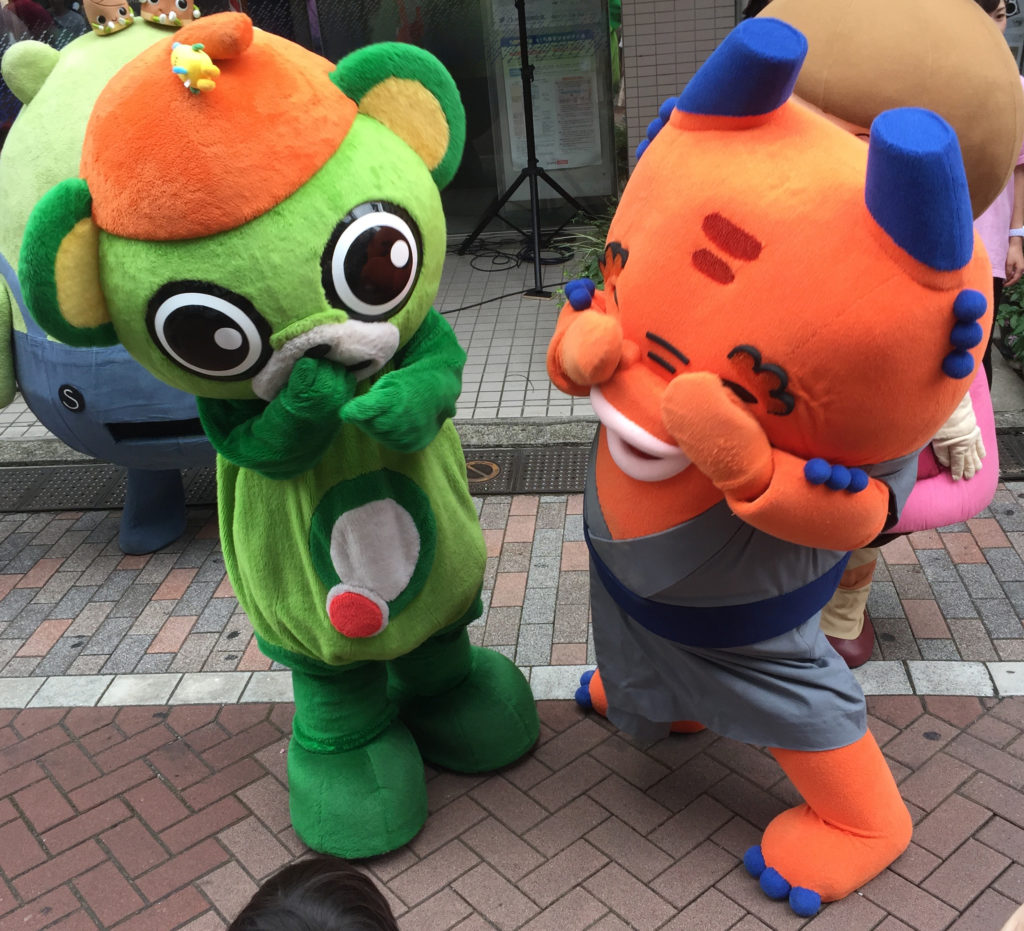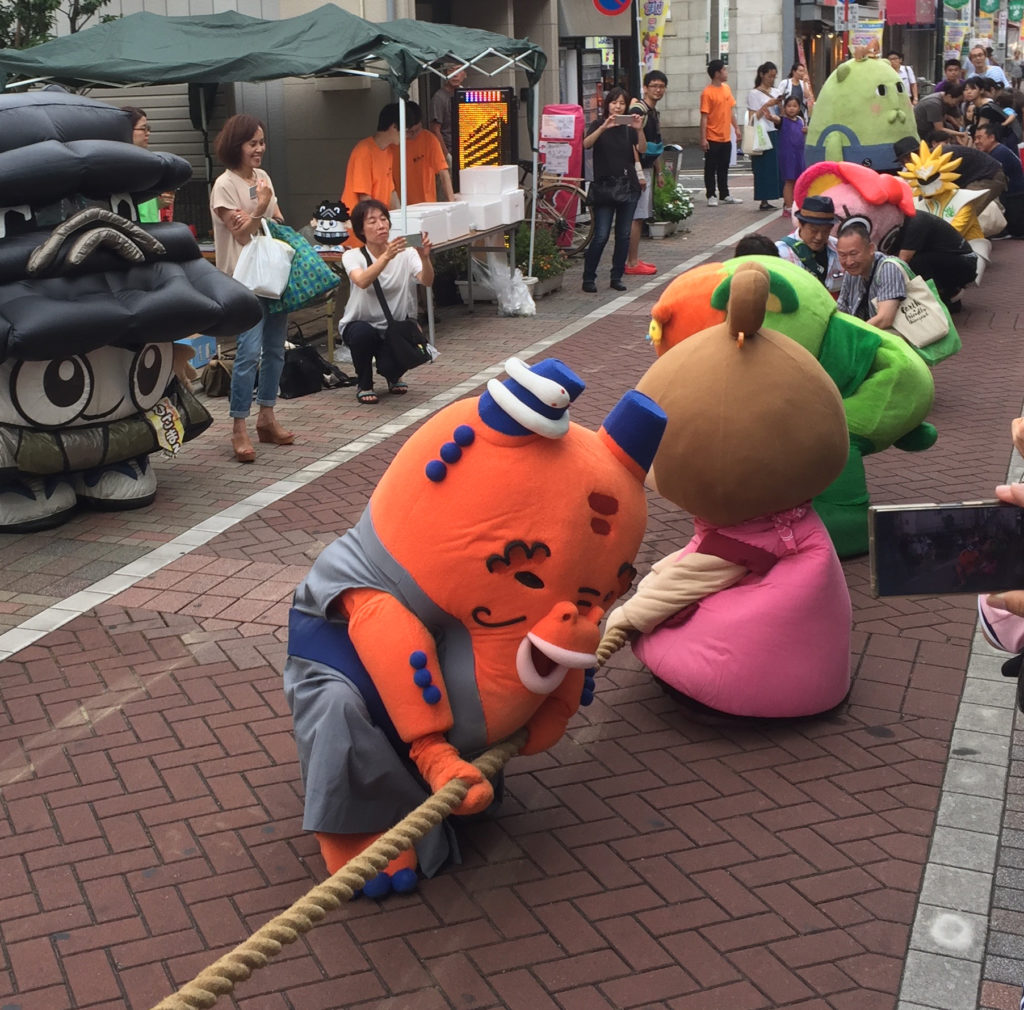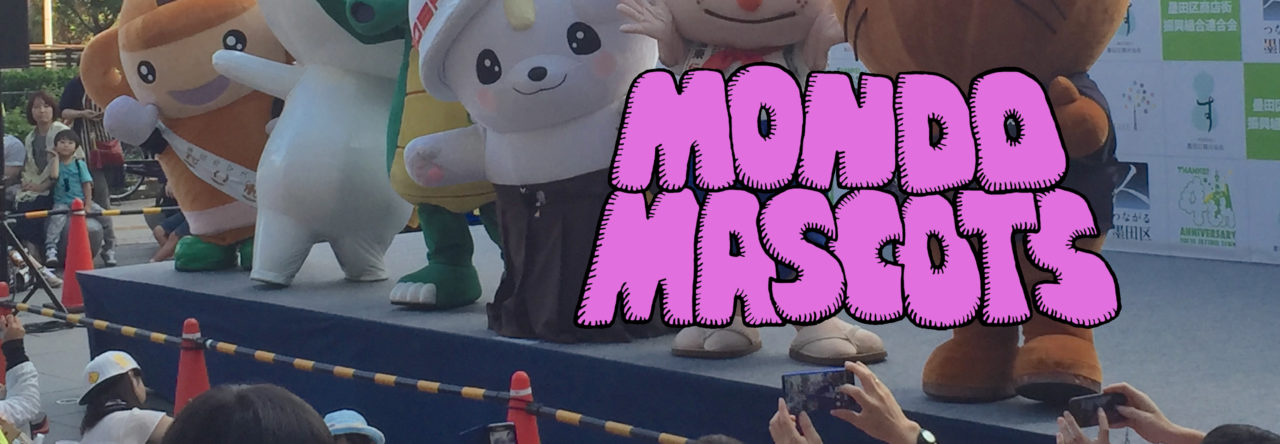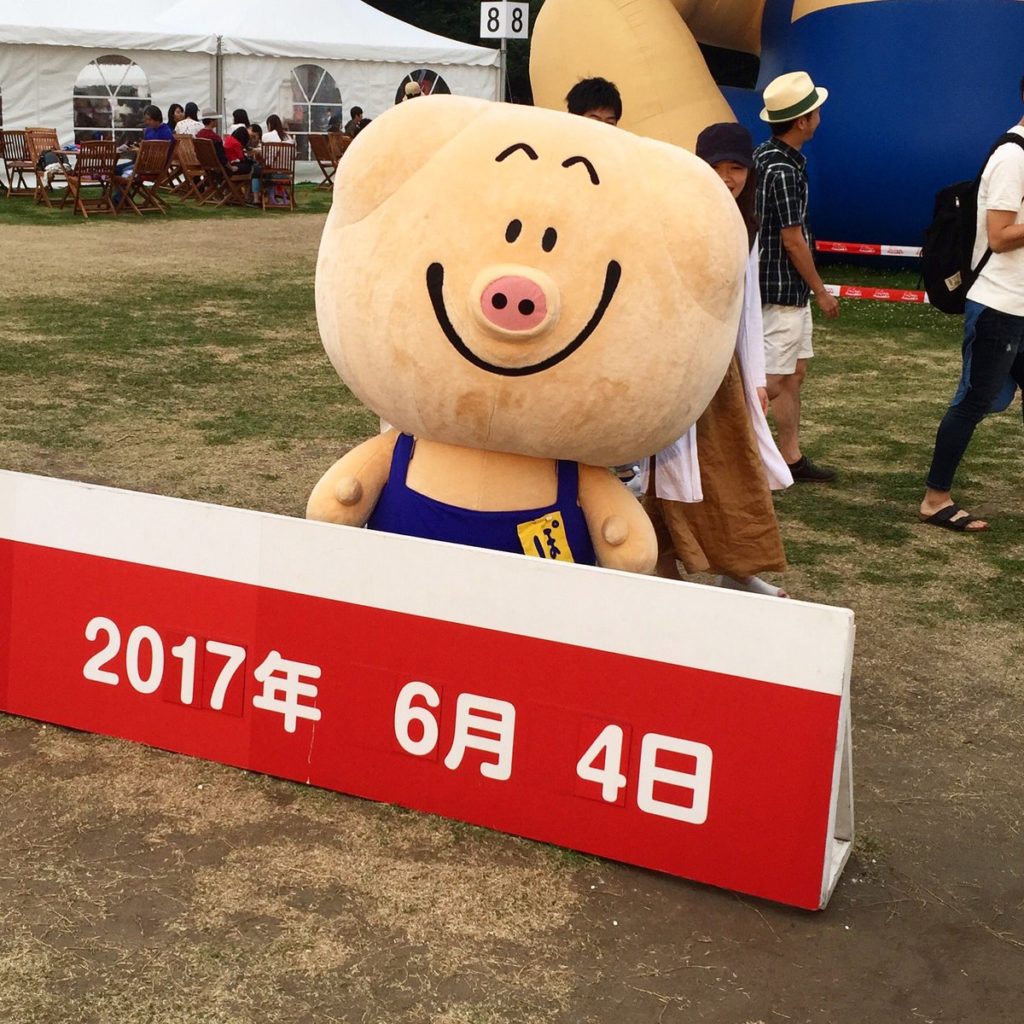
Tachikawa “Manpaku” Food Festival mascot, Po
Japanese mascots often behave in ways that are counter-intuitive. The most common example of this is the mascot who promotes a regional dish in which its own species is the chief ingredient. These barnyard animal mascots have a self-destructive propensity to encourage tourists to munch on their flesh.
This suicidal behaviour contrasts starkly with the mascots’ serene smiles. Each of them is ready at any time to skip blithely into the slaughterhouse. Much the like the creature from Douglas Adams’ “The Restaurant at the End of the Universe” that has been genetically engineered to take pride in being eaten, these meaty mascots gleefully await their grisly fate.
They are dedicated to their own demises. Just last month, a pig mascot named Ecoton took an exam at the Fukuoka Fisherman’s Hall, testing his knowledge of the best fish to complement Tonkotsu Ramen, a local dish of noodles in broth made of pork marrow bones.
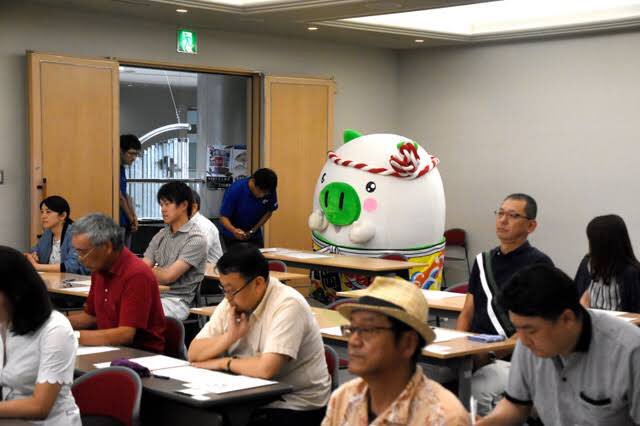
Ecoton, taking a test on fish
One of the most prominent of these enthusiastically edible characters is Hokkaido’s sheep mascot, Jingis Khan No Jin-Kun. The moniker comes from Jingis Khan, a barbecued mutton dish popular in the area, itself named after Genghis Khan, who supposedly popularised sheep meat in the region. But Jin-kun embodies none of the fighting spirit of his Mongolian warlord namesake. Despite being a sheep himself, Jin-kun spends his life singing the praises of the mutton delicacy.
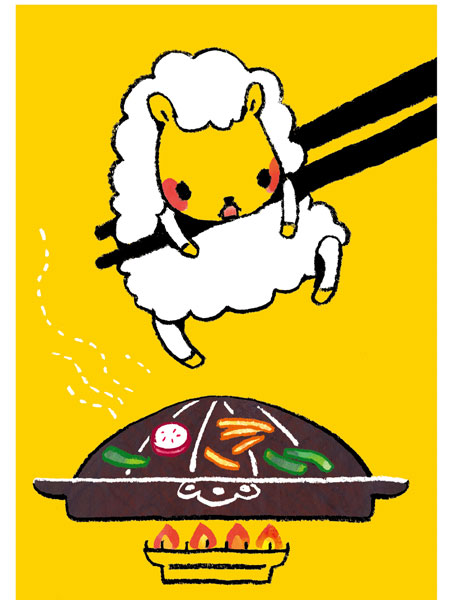
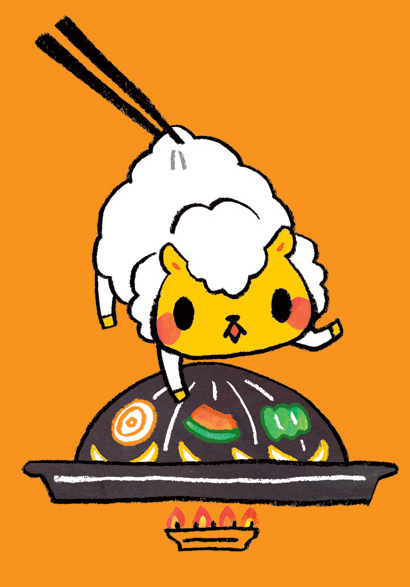
Another mascot who shares this precarious existence is Coroton. He is a massive pig who resides in Maebashi, Gunma, a city celebrated for its pork dishes. So bloated that his forelegs barely touch the ground, Coroton is positively spherical, which must surely make him a sitting duck for local butchers. But, far from waddling to the hills, he happily acts as a cheerleader for his town. Coroton has a death wish that makes Charles Bronson seem timorous by comparison.
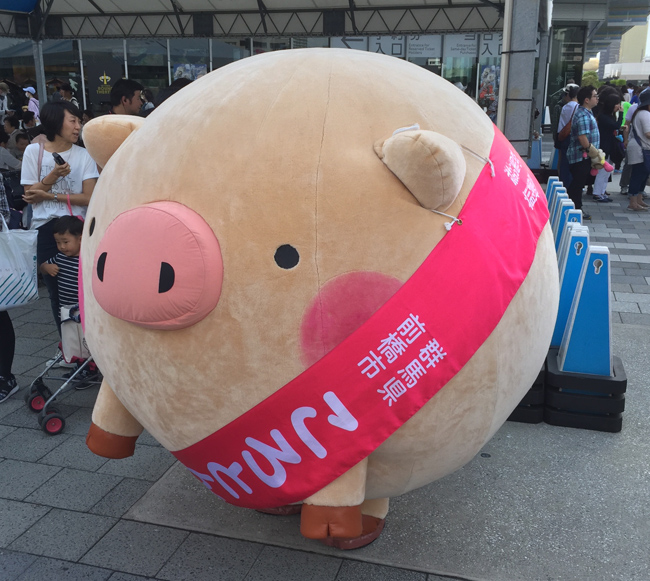
Although these mascots’ lifestyles seem to defy reason, they are at peace with their destinies. They are sure of their purpose in life, and are ready and willing to meet their maker, and for this, I envy them.
Why am hungry, all of a sudden?
